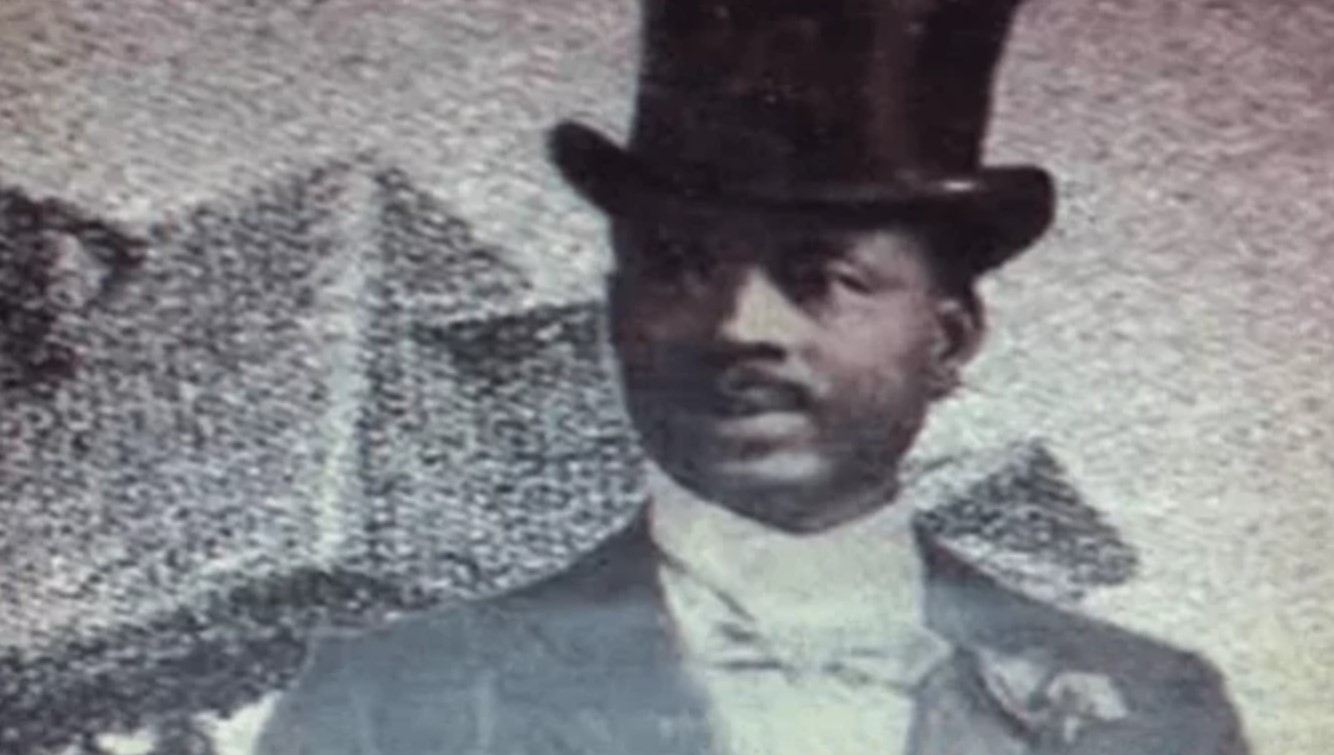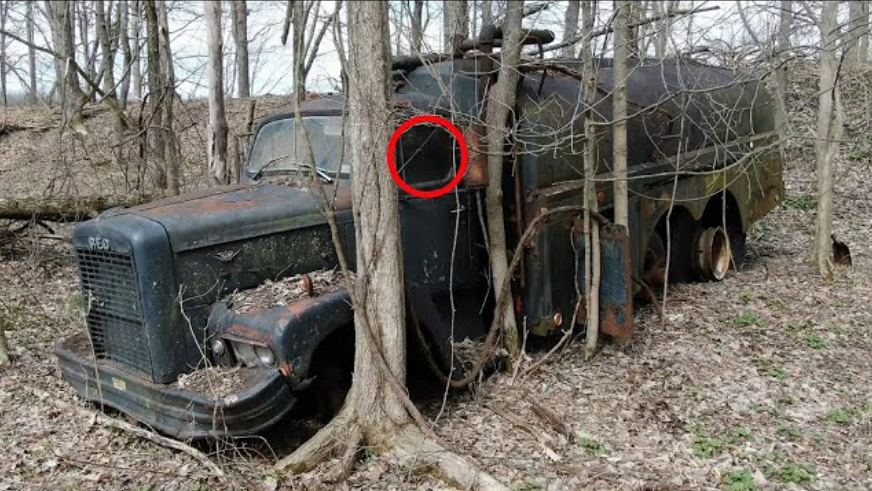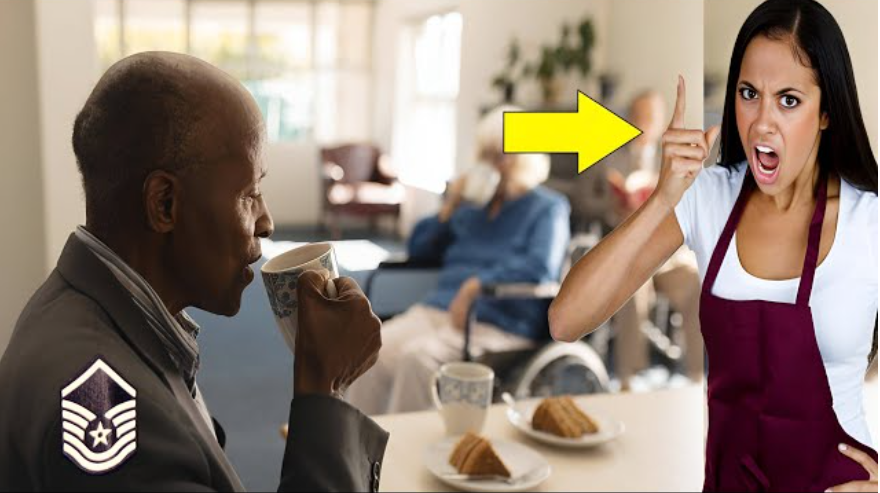METRO
See What Happened Thomas, The Nigerian Lawyer After Insulting Alaafin Of Oyo
Published
3 months agoon
By
1oo9t
Who was Bode Thomas?
Olabode Akanbi Thomas, popularly known as Bode Thomas, was born on October 1919 into the family of Andrew Thomas, a wealthy and influential Yoruba trader. He attended C.M.S. Grammar School, Bariga, a missionary school founded by the Church Missionary Society on the 6th of June, 1859.
Bode Thomas studied Law in London alongside Chief FRA Williams and Remi Fani-Kayode (Femi Fani-Kayode’s father). Later on, Bode Thomas, FRA William and Remi Fani-Kayode established the first Law firm in Nigeria named Thomas, Williams and Kayode in Jankara Street, Lagos…Click Here To Continue Reading>> …Click Here To Continue Reading>>
Chief Bode Thomas rose to prominence at a young age. He became a member of the Regional House of Assembly in 1951. He represented the Western region as Minister of Transport under the Macpherson Constitution.
He was astute, workaholic, thoughtful and forward-looking. He was also a founding member of the Action Group. Prior to joining Action Group, he was a successful Lagos lawyer and was a member of the Nigerian Youth Movement.
Reports claimed that Bode Thomas was a brilliant but very arrogant lawyer. He was said to be so arrogant to the extent that sometimes, people labelled him a bully. Judges hated the way he comported himself in court. They saw him as a brash and arrogant man.
Bode Thomas died in a controversial circumstance after his unfriendly encounter with Alaafin Adeyemi II, father of the current Alaafin Lamidi Adeyemi III. Both Alaafin Adeyemi II and Thomas (who was the Balogun of Oyo in 1949) were members of the Oyo Divisional Council. At a time, the respected Alaafin was chairman of the council before Thomas took over.
Alaafin Adeyemi II READ FULL STORY HERE>>>CLICK HERE TO CONTINUE READING>>>
OldNaija gathered that on November 22 1953, when Chief Bode Thomas arrived at a meeting of the council, all the other councillors, except Alaafin Adeyemi, stood up to welcome him. He rudely said to the king “why were you sitting when I walked in? Why can’t you show me respect?” Bode was 34 years old while the Alaafin was in his 60s.
Alaafin Adeyemi II felt very embarrassed and he said to Bode, “shey emi on gbo mo baun? Emi ni ongbo bi aja mo baun? Ma gbo lo” which translates as “am I the one you are barking at like that? Am I the one you are barking at like a dog? Keep barking.”
Bode as Transport Minister, 1952.
It was alleged that Bode Thomas got home and started barking like a dog. He barked and barked throughout the night till he died the following day – November 23 1953. There were rumours that the Alaafin had Bode Thomas poisoned. He was survived by his wife, Lucretia Shobola Odunsi and children. Among his children are Abimbola, Eniola and Dapo.
Bode has a street named after him in Lagos. He served as a colonial minister of the Colony and Protectorate of Nigeria and privy counsellor of the historic Oyo clan of Yorubaland. He was a brilliant and successful man whose pride, they said, led to his fall
Related
You may like
METRO
Woman Finds Old Vehicle In Woods. She Instantly Regrets Looking Inside –
Published
5 days agoon
October 12, 2024By
1oo9t
While hiking through the dense forest near her home, Laura stumbled upon an old, rusted vehicle half-hidden by overgrown bushes. She held her breath as she approached it and wondered how it had ended up in such a remote spot, far from any roads or trails.
With trembling hands, she pulled open the creaky door, only to be met with a sight that made her stomach churn. For a moment, Laura felt like she couldn’t breathe, and then she let out the most blood-curdling scream ever…Click Here To Continue Reading>> …Click Here To Continue Reading>>
She took a step back from the car, but her foot got stuck under the root of a tree, and she fell. Completely panicking, she quickly stood up and ran back into the deep forest. She wanted to get far away from that car as soon as possible. A while later, she stopped for a moment to catch her breath. She had run faster than ever and hadn’t looked back once, but now she realized her mistake. She checked each of her pockets, desperately wanting to call the police about her discovery, but her phone was gone. She must have lost it when she stumbled back by the car.
Laura turned pale as she realized she needed to go back; she had no choice. Back at the car, she couldn’t help but look inside it just once more, but then she completely froze in fear. You see, just before, when she had looked inside the car, there was a skeleton—a human skeleton. And now, as if it wasn’t scary enough already, it was gone. But whose skeleton was that? How did it end up in the car in the first place, and how could it suddenly have disappeared?
“Oh no, no, no,” Laura whispered, trying to keep herself from screaming at the top of her lungs. She hadn’t thought that this nightmare could get any worse, but it just did. Whatever was going on here, she knew that she wasn’t alone in these woods, and she could very well be in danger. She had so many questions, but she was sure of one thing: she needed to get away from there right now.
She frantically dialed 911, but her call wouldn’t go through. She yelled under her breath as she saw that she had no signal there. She looked around and kept her ears open, ready to run as soon as she heard any noise. The whole time, she couldn’t stop thinking about what kind of person would move a skeleton—and why on Earth anyone would do such a thing.
Laura was just about to leave and go search for a spot where her phone had a signal when she thought of something. This car was hidden so deep inside the forest that it would be difficult to track down, even for the police. So it would probably be useful if she had any photos to show them, right? Taking a deep breath to calm herself, she took some pictures of her surroundings as well as the car. She got as close to the vehicle as she dared and took as many photos as she could without touching anything. The whole time, she heard no other sounds except for her own breathing and the rustling of leaves as she moved her feet around, and quite frankly, she was terrified. READ FULL STORY HERE>>>CLICK HERE TO CONTINUE READING>>>
Suddenly, she noticed a piece of paper on the floor inside the car. After thinking about it for a moment, she picked it up. Perhaps this would contain some useful information about the owner or maybe that skeleton. She held her breath as she carefully unfolded it and gasped when she finally saw what it was. She hadn’t expected anything like this: on the paper seemed to be some kind of map. Laura’s eyes widened as she looked at it and tried to understand it, but no matter how long she stared at it, she became none the wiser. She decided not to waste any time on it and just leave; she didn’t want to spend another second near this car if she didn’t need to.
As Laura walked through the woods, she kept checking her phone to see if she had any signal yet. She also had no idea if she was walking in the right direction, but she was just following a path. At some point, she thought she heard a noise behind her, but when she stopped to listen, it remained silent. Eventually, she told herself, “It’s probably just a little animal. Nothing to worry about.” But she wasn’t even sure if she really believed that.
Laura’s heart pounded as she finally saw the bars appear on her phone. She immediately dialed 911, her fingers shaking. “There’s an old car in the woods with a skeleton inside,” she gasped, trying to keep her voice steady. The dispatcher asked her location, and Laura quickly explained where she was and what she had found. “Please hurry,” she added, her voice trembling with urgency.
The dispatcher listened carefully to Laura’s account, asking her for details about the car and its exact location. After she finished, they told her to come to the station. “It’s safer to discuss this in person,” they said firmly. Laura felt a mix of frustration and relief.
“All right, I’ll head there now,” she replied, glancing around nervously before starting her trek back to civilization. Disappointed by their response but understanding their caution, Laura agreed to visit the station. She began her journey back through the dense forest, trying to stay calm. Every rustle of leaves made her jump. “Just get to the station,” she muttered to herself, focusing on putting one foot in front of the other. The walk seemed endless, each step taking her closer to safety.
By evening, Laura finally reached the police station, exhausted and anxious. She took a deep breath before entering, hoping for immediate action. The fluorescent lights inside felt harsh after the dim forest. She approached the front desk, her heart still racing.
Related
METRO
Bank Kicks Out The Black Woman, Not Realizing She’s Their Boss –
Published
5 days agoon
October 12, 2024By
1oo9t
On a sunny Thursday morning, Cynthia Taylor walked into New Horizon’s Bank in downtown Riverton, ready for an important meeting. Dressed in a sleek, dark gray suit, she looked every bit the part of a successful professional.
Her natural hair was styled in a neat bun, and she carried a leather briefcase. The bustling lobby was filled with customers and staff rushing around, all too absorbed in their routines to notice her. But for Cynthia, this wasn’t just a visit; it was the culmination of years of hard work.
As she approached the teller line, she noticed a few side glances — the kind she had grown used to as a Black woman in corporate spaces. Still, she didn’t let it bother her. She stepped up to one of the windows and greeted the teller with a warm smile. “Good morning, I’m here for a meeting with Mr. Weston…Click Here To Continue Reading>> …Click Here To Continue Reading>>
The teller, a young man in his early 20s, looked her up and down, his expression stiffening slightly. “Are you sure? Mr. Weston is our branch manager. Do you have an appointment?” he asked, his tone clipped.
“Yes, I do,” Cynthia responded, maintaining her poise. She pulled out a business card from her briefcase and handed it over. It was an official card from New Horizon’s Bank, listing her title as the Regional Vice President. The teller’s face shifted from skepticism to amusement as he glanced at the card.
“This must be a joke,” he scoffed. “I’m not sure where you got this, but Mr. Weston doesn’t have time for pranks. You’ll need to leave, ma’am.”
Cynthia felt her pulse quicken, but she maintained her composure. “I assure you, this isn’t a joke. If you check your system, you’ll see that I have an appointment scheduled.”
“Look,” the teller interrupted, his voice growing sharper, “we don’t have time for this. You need to leave, or I’ll call security.”
Before Cynthia could respond, the supervisor approached, having overheard the exchange. “What’s the problem here?” she asked, her tone more annoyed than concerned.
“This woman claims she’s here for a meeting with Mr. Weston,” the teller said, rolling his eyes. “She says she’s the Regional Vice President,” he added with a sarcastic tone.
The supervisor took one look at Cynthia and frowned. “Ma’am, if you don’t leave now, we’ll be forced to escort you out,” she said firmly.
At that moment, a security guard, who had been watching the situation from across the lobby, began walking over. Before he could reach them, Cynthia took a deep breath and calmly said, “I’d like to speak to Mr. Weston myself. He’ll want to know that I’m here.”
The supervisor folded her arms. “Fine,” she said, clearly exasperated. “But if he says you’re not expected, you’re out of here.” She motioned for the security guard to stay close as she led Cynthia down a hallway to Mr. Weston’s office.
As they reached the door, the supervisor knocked lightly. “Mr. Weston, a visitor here to see you,” she said, opening the door.
Mr. Weston, a middle-aged white man with thinning hair and glasses, glanced up from his desk, his brow furrowed as he saw Cynthia walk in. “I wasn’t expecting a—” he paused, clearly thrown off.
Cynthia gave a polite nod and extended her hand. “Good morning, Mr. Weston. I’m Cynthia Taylor, the new Regional Vice President. I’m here to discuss some changes we’ll be implementing at this branch.”
The color drained from Mr. Weston’s face as he stood up, fumbling to shake her hand. “Oh, I… I see,” he stammered. “Please, have a seat.”
Behind Cynthia, the supervisor stood frozen in the doorway, her face turning red with embarrassment. She quickly closed the door behind her and disappeared down the hallway, leaving Mr. Weston to handle the situation.
As Cynthia sat down, she noticed the subtle discomfort in his demeanor. She was used to it — the shock, the disbelief, the subtle indications that people hadn’t expected someone like her to hold such a position. But that was exactly why she was here.
“I apologize for the confusion earlier,” Mr. Weston said, trying to compose himself. “We weren’t informed of your visit.”
“That’s quite all right,” Cynthia replied smoothly. “Actually, I requested that my visit be unannounced. I wanted to get an authentic sense of how the branch operates on a day-to-day basis.”
Mr. Weston nodded, his unease evident. “I understand,” he said, though it was clear that he didn’t.
Cynthia opened her briefcase and took out some documents, laying them on the desk between them. “Let’s get straight to business,” she began. “As the new Regional Vice President, I’ve been tasked with overseeing the operations of several branches, including this one. Our goal is to improve customer service, streamline processes, and ensure that our staff is properly trained to provide the best possible experience.”
Mr. Weston forced a smile, still processing the situation. “Of course, we’ve always prided ourselves on excellent service,” he replied, though there was a faint edge of defensiveness in his tone.
Cynthia gave a knowing smile. “I’m glad to hear that. However, I did notice a bit of hesitation when I first arrived. It seems there may be some room for improvement when it comes to treating all customers with the same level of respect.” READ FULL STORY HERE>>>CLICK HERE TO CONTINUE READING>>>
There was a slight pause as Mr. Weston’s smile faltered. He knew exactly what she was referring to. “I assure you, Ms. Taylor, any oversight was unintentional,” he said quickly.
“Of course,” Cynthia replied, not letting him off the hook that easily. “But I’d like to discuss some initiatives that will help ensure every customer, regardless of their background, feels welcomed and valued here. I also want to make sure the staff is aware of my position and understands that we all share the same goal.”
Mr. Weston’s discomfort grew as Cynthia outlined her plans for the branch. The new policies would include diversity training, a review of hiring practices, and customer service workshops aimed at eliminating bias. Cynthia knew these changes wouldn’t be welcomed by everyone, but she wasn’t there to be liked; she was there to make a difference.
Over the next several weeks, Cynthia’s presence at the bank became more frequent. She conducted staff meetings, oversaw training sessions, and made sure her initiatives were being implemented. While some employees adapted well to the changes, others — like the young teller and the supervisor who had initially dismissed her — struggled to adjust.
One afternoon, as Cynthia was wrapping up a meeting, she overheard a conversation between the young teller and a colleague near the break room. “I can’t believe they’re making such a big deal out of all this diversity stuff,” the teller scoffed. “It’s like they’re trying to change everything overnight.”
His colleague shrugged. “What can you do? She’s the boss now,” he said, lowering his voice.
Cynthia didn’t react immediately, but their words stayed with her. She understood that change was hard, especially for people who didn’t see a need for it. However, she also knew that progress wasn’t about making everyone comfortable; it was about doing what was right.
One day, as Cynthia was leaving the bank, an elderly Black woman approached her outside. The woman hesitated for a moment before speaking. “Excuse me, ma’am,” she said softly. “Are you the new manager here?”
Cynthia turned and smiled warmly. “I’m the Regional Vice President, actually. How can I help you?”
The woman’s eyes widened. “Oh, I didn’t realize. I just wanted to thank you. I come to this bank every month to cash my check, and the last time I was here, the service was much better. I noticed that the tellers were a lot more respectful.”
Cynthia felt a swell of pride. “Thank you for saying that,” she replied. “We’re working hard to make sure everyone feels valued here.”
The woman’s expression softened. “I appreciate that. It’s nice to know someone is looking out for folks like me.”
As Cynthia watched the woman walk away, she felt a renewed sense of purpose. The changes she was making weren’t just about policies or training sessions; they were about creating a culture where people like the elderly woman didn’t have to worry about how they would be treated.
However, not everyone was pleased with the new direction. A few weeks later, Cynthia was summoned to a board meeting. As she walked into the conference room, she noticed a somber expression on the faces of the board members. Mr. Weston was present as well, looking slightly smug.
“Ms. Taylor,” the chairman began, “there have been some concerns raised about the changes you’ve implemented at the Riverton branch. Some of the staff feel that the new policies are excessive and have expressed dissatisfaction.”
Cynthia’s gaze didn’t waver. “I understand,” she said calmly, “but these changes are necessary to improve the overall customer experience and ensure that our bank reflects the values we claim to uphold. I’m confident that, in time, the staff will come to appreciate the positive impact.”
The chairman glanced at Mr. Weston, who spoke up. “With all due respect, Ms. Taylor, some of us feel that the changes are being pushed too quickly. There’s a way to promote inclusivity without alienating the existing staff.”
Cynthia’s jaw tightened slightly. She’d anticipated resistance, but she wasn’t about to back down. “Change is never easy, and I understand that some adjustments take time. However, the results speak for themselves. Customer satisfaction has improved, and we’re seeing more engagement from
the community. We owe it to our customers to continue this progress.”
The room fell silent. It was clear that Cynthia wasn’t going to let a few dissenting voices derail her mission. The board members exchanged glances, and finally, the chairman nodded. “Very well, Ms. Taylor. We’ll continue with the current plan and reassess in a few months.”
As Cynthia left the meeting, she could feel Mr. Weston’s eyes on her, but she didn’t look back. She had more work to do, and nothing was going to stop her.
In the months that followed, New Horizon’s Bank saw significant improvements. The branch had a more welcoming atmosphere, staff turnover decreased, and community outreach efforts brought in new customers. Cynthia’s vision was becoming a reality, one step at a time. The journey hadn’t been easy, but Cynthia knew that lasting change never was. She had faced skepticism, resistance, and outright disrespect, but she’d also witnessed the power of perseverance and the strength of standing firm in one’s beliefs.
As she walked through the bank’s doors each day, she was reminded of why she had taken on this challenge: to create a place where everyone was treated with dignity, no matter who they were. And so, Cynthia continued her work, knowing that real progress was about more than just changing policies; it was about changing minds.
As she reflected on her journey, she couldn’t help but wonder how many others out there were quietly pushing against boundaries just as she had — and what would happen if more people dared to demand the respect they deserved.
Related
METRO
Waitress Refused To Serve Elderly Black Man Not Knowing His Daughter Owned The Restaurant –
Published
5 days agoon
October 12, 2024By
1oo9t
The waitress refused to serve an elderly Black man, not knowing his daughter owned the restaurant. When the elderly Black man stepped into the restaurant, he expected nothing more than to enjoy a quiet meal in one of the city’s most popular dining spots. This particular restaurant had become a special place for him over the years—a refuge where he had shared meals with friends, family, and sometimes just his thoughts. Today was no different, or so he thought…Click Here To Continue Reading>> …Click Here To Continue Reading>>
He had no idea that a simple meal would turn into an event that would change everything, not just for him but for the entire restaurant staff. Mr. Charles Robinson, the man who entered that day, moved at a slow, measured pace, his cane tapping lightly against the tiled floor as he made his way toward the hostess stand. His weathered face, full of deep lines from a life well-lived, broke into a small smile as he observed the restaurant’s warm, familiar atmosphere.
Charles had been a regular here for years, and it had become one of his favorite spots to relax and enjoy a meal. But today was different. As he approached the hostess stand, he was met by a young waitress named Megan, a recent hire who didn’t recognize him. She was busy shuffling menus around when Charles greeted her with a polite “Good afternoon.”
Megan barely looked up from her desk. “Yeah, what do you want?” she muttered.
Taken aback by her tone, Charles cleared his throat. “I was hoping for a table,” he said gently. “I’ve made a reservation under the name Robinson.”
Megan glanced up at him with disinterest. Her eyes quickly scanned his appearance—his well-worn clothes, old-fashioned hat, and the cane in his hand. Something flashed in her expression, something cold and dismissive.
“Sorry,” she said curtly, “we’re fully booked. No tables available.”
Charles furrowed his brow. “I made a reservation yesterday,” he repeated, trying to maintain his composure. “It should be under Robinson.”
Megan let out a sigh, clearly annoyed. “I already told you, there’s no tables available. You should probably try somewhere else.” Her eyes flicked over him again, and she added under her breath, “This place isn’t really for people like you.”
Charles paused. The comment, though quiet, hit him like a punch to the gut. He knew exactly what she meant by “people like you.” He had dealt with this sort of prejudice all his life, but it still stung. Still, he tried to remain calm. He wasn’t just another customer—his daughter, Simone, owned this very restaurant. But Charles wasn’t the type to throw around his connections. He had always taught his children to treat everyone with respect, no matter their station, and he wasn’t about to go against his own principles.
“I don’t mean to cause any trouble,” Charles said softly, “but I was hoping to enjoy a meal here. I’ve been coming to this restaurant for years.”
Megan rolled her eyes. “Well, times change, and like I said, there are no tables available. Maybe you should go back to where you came from.”
The words hung in the air like a slap. Charles stood still for a moment, feeling the weight of decades of prejudice and hardship bearing down on him. He had spent his life facing this kind of treatment, but at this point in his life, he didn’t feel like he had to endure it any longer. He straightened his back as best as he could and looked Megan directly in the eyes.
“I’d like to speak to the manager,” he said firmly.
Megan raised an eyebrow, clearly surprised by his demand. “And what? Why? The manager’s busy, and like I said, there’s no room for you here.”
“I still want to speak to the manager,” Charles repeated, his voice steady but calm, with an edge that suggested he would not be backing down.
With a huff, Megan turned away and disappeared into the back of the restaurant. Charles stood there, feeling the eyes of other diners on him. He could sense the judgment in their glances—an old Black man daring to demand a seat in such a popular establishment. But Charles had been through too much in his life to let those stares bother him. He stood his ground, waiting for the manager to appear.
Minutes passed, and finally, a man in a crisp suit came rushing out of the kitchen. His face was flushed with irritation as he approached Charles. This was Ben, the restaurant’s general manager, and though he didn’t know Charles personally, he had certainly heard of him. Ben had been warned by the restaurant’s owner, Simone Robinson, to always treat her father with the utmost respect whenever he came by. But today, he had been caught off guard.
“Is there a problem here?” Ben asked, his tone slightly accusatory as he glanced between Charles and Megan.
Charles remained calm. “I made a reservation, but your staff seems to think there’s no table for me. I’ve been coming to this restaurant for a long time, and I’m just looking to have a meal.”
Ben quickly glanced at Megan, who shifted uncomfortably. “What’s going on here, Megan?” he asked, a sharpness in his voice.
Megan crossed her arms defensively. “I told him we’re fully booked, there’s no tables available, and he’s acting like he’s entitled to something. He didn’t even make a reservation.” READ FULL STORY HERE>>>CLICK HERE TO CONTINUE READING>>>
Charles felt his heart tighten at the blatant lie, but before he could say anything, a familiar voice echoed across the room.
“Dad?”
Everyone turned as Simone Robinson, the owner of the restaurant, walked through the doors. She had just arrived from a meeting and had come to surprise her father for a special lunch. Her eyes widened as she took in the scene before her—her father standing at the hostess stand, and her staff looking flustered and defensive.
Simone’s sharp gaze landed on Megan. “What’s going on here?” she demanded, her voice cold.
Megan’s face went pale. “I, uh… he, uh… I didn’t know—”
“Didn’t know what?” Simone interrupted, her voice cutting through Megan’s stammering. “You didn’t know that this man is my father? Or did you just assume that he didn’t belong here because of the way he looks?”
Megan opened her mouth to speak, but no words came out. The restaurant had fallen completely silent as diners watched the unfolding drama. Phones were out, and the situation was quickly becoming viral material for social media.
Simone turned to Ben, her manager, her expression filled with disappointment. “I trusted you to run this place with respect for everyone, Ben. How could you let something like this happen?”
Ben looked down at the floor, shame washing over him. “I’m so sorry, Simone. I didn’t know it was him. I mean, I didn’t know—”
“No,” Simone shook her head. “That’s not the point. This isn’t about knowing who he is; it’s about treating every customer with dignity and respect, no matter who they are.”
She turned back to her father. “Dad, I’m so sorry this happened to you.”
Charles smiled gently at his daughter. “It’s all right, Simone. I’ve dealt with worse, but I think it’s time you and I had a talk about the way your staff treats people.”
Simone nodded, her eyes flashing with determination. She looked around the restaurant, addressing both her staff and the patrons who had been watching the scene unfold. “This restaurant was built on the principles of community, respect, and inclusivity. What happened here today is unacceptable, and it will not be tolerated.”
“Megan, you’re fired, effective immediately.”
Megan’s face crumpled, but she didn’t argue. She turned and walked out of the restaurant, her head down, as the crowd of diners watched silently. Simone then turned to the other staff members. “We will be implementing mandatory training for everyone—training on respect, equality, and customer service. This place will be a welcoming environment for everyone, regardless of who they are or what they look like.”
The restaurant broke out into applause. The diners, many of whom had witnessed the entire incident, cheered Simone’s words, and phones quickly captured the moment. Social media posts were already circulating, praising Simone for standing up against discrimination.
Charles felt a sense of pride swelling in his chest as he watched his daughter take control of the situation. She had always been a fighter, just like him, and now she was using her success to make a difference, ensuring that no one else would have to experience what he had endured that day. After the restaurant quieted down, Simone led her father to the best table in the house. The same restaurant that had tried to deny him a seat was now his daughter’s empire—a place built on love, resilience, and justice—and Charles couldn’t have been prouder.
This story teaches us the importance of treating everyone with respect, no matter their appearance or status. The waitress judged Charles based on his looks, not knowing his connection to the restaurant’s owner. Her prejudice led to her downfall, showing that making assumptions about people can have serious consequences. The story reminds us that true power lies in humility, kindness, and fairness. It also highlights the importance of standing up against discrimination and ensuring that everyone is treated with dignity.
Simone’s swift action not only defended her father but also sent a clear message that such behavior would not be tolerated in her establishment. This serves as a powerful reminder that respect is universal, and no one should be treated as less simply because of their appearance or background. In today’s interconnected world, these moments are often witnessed by many, and the consequences of discriminatory actions can be far-reaching.
Have you ever witnessed or experienced a moment where someone was
Related
Trending
-

 METRO3 months ago
METRO3 months agoMan Caught Delivering Urine-Soaked Sandwiches To All Unsuspecting Neighbors
-

 SPORTS3 months ago
SPORTS3 months agoConi Lazio Wraps Up Successful Educamp in Rome with Grand Finale
-

 IN-THE-NEWS4 months ago
IN-THE-NEWS4 months agoSanusi Remains Emir – Kano Govt
-

 SPORTS3 months ago
SPORTS3 months agoParis 2024 Olympics: Before the bronze medal, French riders recount the longest 20 minutes
-

 IN-THE-NEWS3 months ago
IN-THE-NEWS3 months agoSinger, Banky W Returns To School To Pursue Master’s Degree In Policy (Video)
-

 IN-THE-NEWS4 months ago
IN-THE-NEWS4 months agoKeyamo Flags-off N62.8bn Gusau International Airport Project
-

 SPORTS3 months ago
SPORTS3 months agoFollow today’s Paris Olympics live
-

 SPORTS3 months ago
SPORTS3 months agoSpain knocks out Germany after extra time to reach Euro semi-finals
